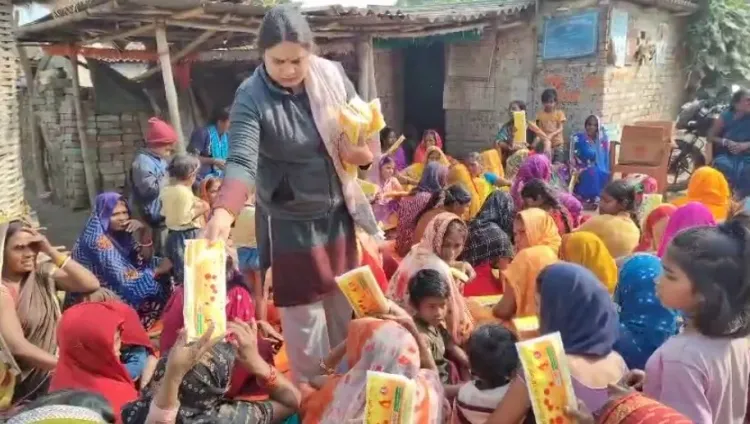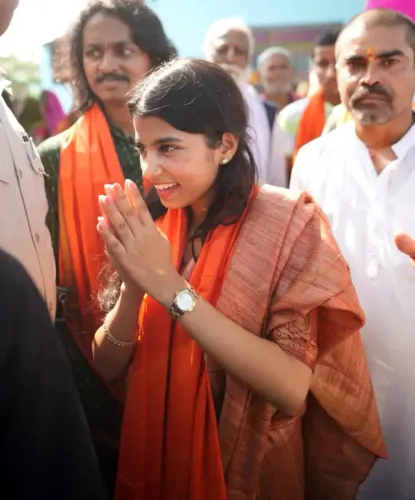How Did a Woman from Bihar Inspire Change Through Hygiene?

Synopsis
Key Takeaways
- Khushbu Thakur has transformed menstrual hygiene awareness in Bihar.
- Over 1 million sanitary pads have been distributed free of charge.
- Her initiative has created job opportunities for local women.
- Addressing societal stigma is crucial in promoting menstrual hygiene.
- Support from local leaders can amplify grassroots movements.
Chhapra (Bihar), May 16 (NationPress) Driven by Prime Minister Narendra Modi's Swachh Bharat Mission, Khushbu Thakur from the Saran district in Bihar has emerged as a beacon of transformation by spearheading a significant movement centered on menstrual hygiene. Her initiatives have not only established her as a thriving woman entrepreneur but have also fostered awareness and dignity for countless women and adolescent girls.
Under the Fiem Foundation, Khushbu initiated a small-scale production unit for sanitary pads in Jalalpur, Chhapra, with the mentorship and backing of BJP MP Janardan Singh Sigriwal. The facility, outfitted with cutting-edge sanitary pad manufacturing machines, was inaugurated by former Deputy Chief Minister Tarkishore Prasad.
This initiative has generated employment for 4–5 local women and has led to health awareness campaigns within the community.
Khushbu has distributed over 1 million sanitary pads at no cost and actively visits villages, schools, and neighborhoods to engage women and girls, promoting open discussions about menstruation.
Initially, she encountered considerable resistance—many women felt uncomfortable discussing periods and even declined sanitary pads due to prevailing stigma.
Nevertheless, after nearly four years of hard work and determination, Khushbu has gained recognition in the region. She has successfully altered societal perceptions, motivating women to opt for hygienic sanitary pads instead of unhygienic cloths—thereby minimizing infections and related health issues.
In an interview with IANS, Khushbu expressed: "I have dedicated the last four and a half years to this mission, inspired by the Swachh Bharat campaign. We've distributed over 1 million packets of sanitary pads in rural regions. The transformation I have witnessed during this time is extraordinary. I am proud to be the first woman from Saran to venture into this domain."
She reflects on her initial challenges—enduring derogatory remarks, public humiliation, and emotional distress.
“People claimed I was ruining women’s lives, saying I had nothing better to do. Many women shunned me. I often cried at night,” she recounted. “Yet, I constantly reminded myself that my work was essential. Today, when a father requests a pad for his daughter, or a young man seeks one for his mother—it makes all my efforts worthwhile.”
Khushbu attributes her success to Prime Minister Modi's vision and local MP Sigriwal’s encouragement, which has allowed her initiative to flourish since its inception in 2021, continuing to impact rural Bihar.
Her manufacturing unit now employs four to five additional women who produce sanitary pads and distribute them to women in villages and schools, furthering their message of the necessity of sanitary pads during menstruation.
In the beginning, when Khushbu Thakur attempted to engage women on the topic of menstruation, she faced significant challenges and resistance from many who were uncomfortable discussing it.
After four years of persistent effort, Khushbu has successfully gained the villagers' trust and has become a role model for young girls in the community.
Throughout the years, she has educated numerous women about the dangers of using unclean cloths during their menstrual cycles.
Her dedicated efforts are now being recognized not only by the villagers but also by various organizations aligned with the Clean India Mission.








